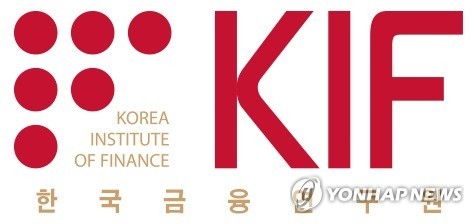
(Seoul=Yonhap Infomax) Sang Min Han =
There are growing calls for regular post-investment performance evaluations of South Korea’s 150 trillion won ($112.7 billion) National Growth Fund, which is set to launch next month to support the advanced strategic industry ecosystem.
Kim Hyun-tae, research fellow at the Korea Institute of Finance, stated in a commentary on “2026 Economic Outlook and Policy Implications” released on the 23rd, “For public-private joint investment programs such as the National Growth Fund, regular post-investment performance assessments should be conducted, and a governance structure must be established to enable efficient reallocation of investment capital.” He added, “It is essential to ensure that these programs deliver tangible results.”
With the National Growth Fund scheduled to launch on December 10, the Financial Services Commission (FSC), Korea Development Bank, and the five major financial holding groups—KB, Shinhan, Woori, Hana, and NH NongHyup—signed a memorandum of understanding (MOU) on the 17th to ensure the fund’s success.
On the same day, Lee Ok-won, Vice Chairman of the Financial Services Commission, remarked, “Since the announcement of the productive finance transformation initiative, the financial sector has responded to policy directions, but market sentiment remains cautious.” He continued, “There is still widespread criticism that the financial sector is generating massive profits from interest income while failing to play a sufficient role in strategic capital allocation based on industrial needs.”
The shift toward productive finance is regarded as a key policy to bolster the growth potential of the domestic economy.
Kim emphasized that, under this productive finance framework, selective support is needed to prevent capital from being concentrated in so-called ‘zombie’ companies—unviable firms kept afloat by excessive funding.
He said, “As credit supply to the corporate sector expands under the productive finance initiative, the financial sector must strengthen its screening function to avoid excessive support for marginal companies, which could delay restructuring and lead to inefficient resource allocation.”
Kim also stressed the need to both reduce the concentration of household assets in real estate and activate productive finance through the capital market.
He noted, “It is necessary to manage market liquidity to prevent excessive flows into non-productive sectors such as real estate, and to guide funds toward productive investment in the real economy.”
smhan@yna.co.kr
(End)
© Yonhap Infomax. All rights reserved. Unauthorized reproduction, redistribution, or AI training/use is prohibited.
Copyright © Yonhap Infomax Unauthorized reproduction and redistribution prohibited.

